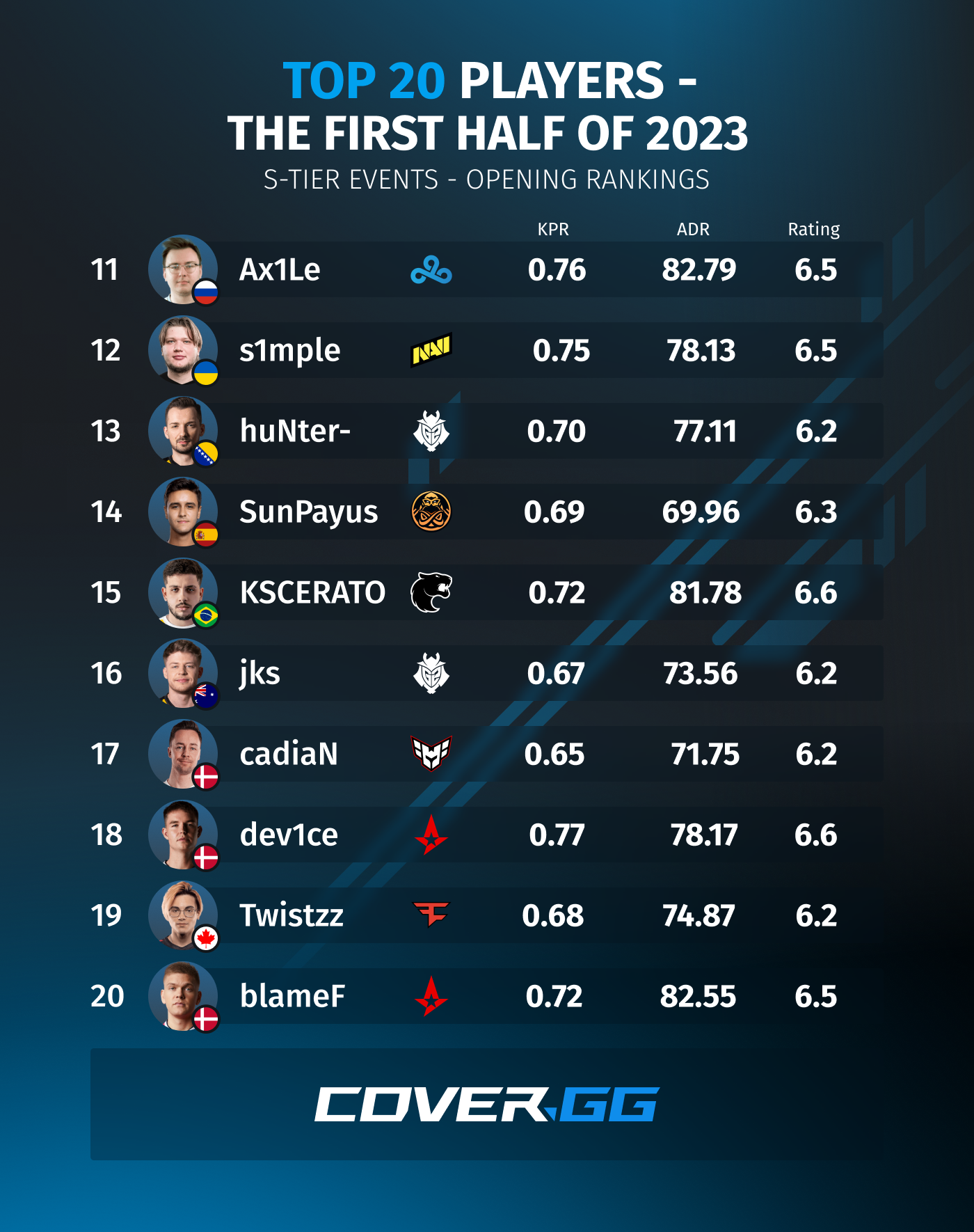Al Jobran Insights
Exploring a World of News and Information
Ranking the Unrankable: A Deep Dive into CSGO Player Rankings
Uncover the secrets behind CSGO player rankings! Dive deep into the debate and discover who truly deserves the top spot.
The Evolution of CSGO Player Rankings: From Stats to Skills
The world of CSGO player rankings has undergone a significant transformation over the years, evolving from a purely statistical evaluation to a more nuanced assessment that incorporates player skills. Initially, rankings were primarily based on win-loss records, kills per game, and other straightforward metrics. However, as the competitive landscape intensified, metrics began to evolve. Players and analysts recognized that factors like in-game decision-making, team synergy, and clutch potential were crucial for truly understanding a player's impact on the game. As a result, advanced analytics and performance metrics have emerged, providing a more holistic view of player abilities.
Moreover, the introduction of skilled-based matchmaking has also influenced how CSGO player rankings are determined. The game now emphasizes individual player impact rather than relying solely on team performance. This shift highlights the importance of players possessing strong mechanics, strategic thinking, and adaptability in various scenarios. Additionally, ranking systems have become more transparent, enabling players to track their progress through comprehensive leaderboards and detailed performance breakdowns. As the focus shifts from mere statistics to a more multi-dimensional skill assessment, the CSGO community continues to adapt, ensuring that rankings reflect the true essence of competitive gameplay.

Counter-Strike, a popular tactical first-person shooter game, has captivated players for years with its competitive gameplay and team-based strategy. Players often seek to improve their skills, such as mastering weapon control; for instance, learning how to cs2 follow recoil can significantly enhance a player's performance. From casual matchmaking to professional tournaments, Counter-Strike continues to evolve and maintain its relevance in the gaming community.
How to Evaluate CSGO Players Beyond the Numbers
When evaluating CSGO players, it's important to look beyond the raw statistics that often dominate discussions. While kill-to-death ratios and headshot percentages offer some insight, they do not capture the full spectrum of a player's capabilities. Teamwork is crucial in a game as strategical as CSGO; players who communicate effectively and coordinate with their teammates can significantly influence the outcome of a match. Thus, observing a player's in-game decision-making and their ability to adapt under pressure can provide a more comprehensive understanding of their true skill level.
Another vital aspect to consider when evaluating CSGO players is their mentality and attitude towards the game. Traits such as resilience and motivation can often differentiate top players from their peers. For instance, during crucial moments in a match, a player's ability to remain calm and focused can often lead to decisive plays that shift the momentum in their favor. Additionally, reviewing their history of performance under pressure and how they respond to setbacks can help paint a clearer picture of their potential for growth and success in the competitive landscape.
Is There a Perfect Method to Rank CSGO Players? A Closer Look
When it comes to ranking CSGO players, there is no universally accepted method that can accurately capture a player's skill level. Various systems, such as matchmaking ranks, competitive rankings, and third-party platforms, provide different insights into a player's abilities. Factors including win rates, kill-to-death ratios, and individual performance metrics come into play, but they often vary greatly from player to player. This divergence leads many to question: is there truly a perfect method for ranking players in CSGO?
To better understand the complexities of ranking CSGO players, it's essential to consider both subjective and objective factors. For example, while a player may have a high rank, their performance in clutch situations or teamwork ability could tell a different story. Furthermore, the use of matchmaking algorithms also adds a layer of complexity; they are designed to fairly match players of similar skill, but they don't always reflect true capability. As such, the definition of a perfect ranking method remains elusive, and aspiring players should focus on continuous improvement over striving for an elusive metric.